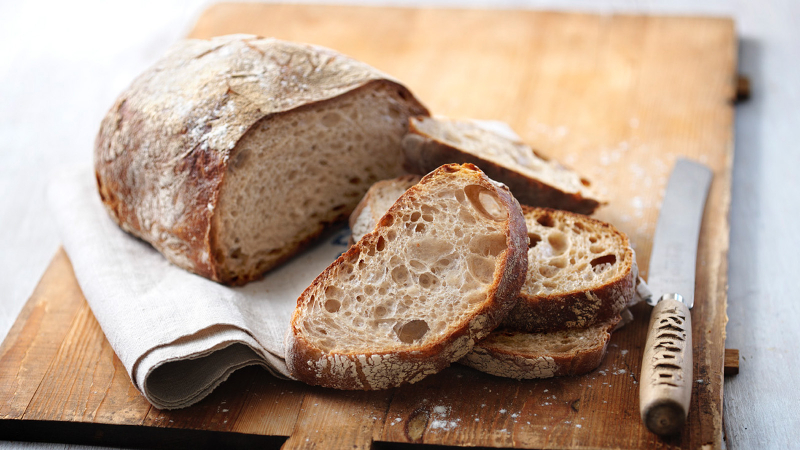Sourdough

Yeast and bacteria that are present in nature are used in the fermentation process that creates sourdough to help the bread rise. The amount of phytates, also known as phytic acid, that bind to some minerals and impede their absorption is decreased by fermentation.
According to one study, sourdough fermentation reduced the amount of phytate by more than 50% when compared to using conventional yeast. Due to its prebiotics and the probiotics created during the fermentation process, sourdough may also be easier to digest than other bread. Probiotics are healthy bacteria found in your body and in certain foods. Getting enough of each encourages digestion and optimum gut health. Last but not least, sourdough bread is believed to have a low glycemic index (GI), a metric for how a food affects blood sugar levels.








